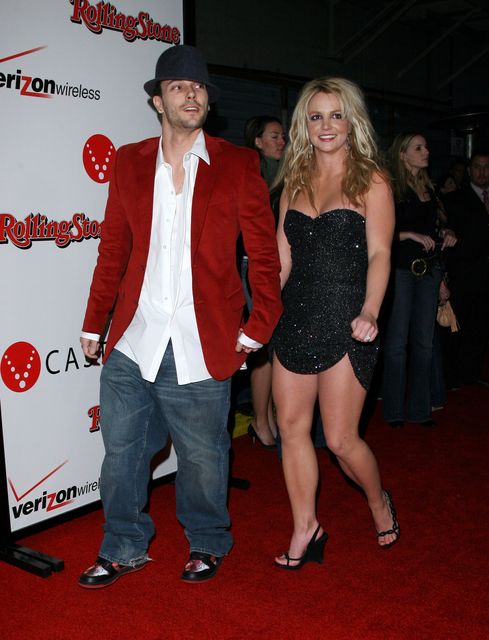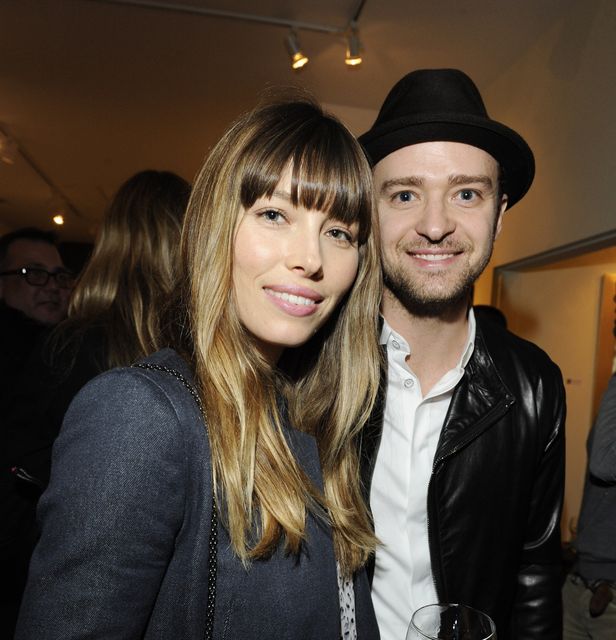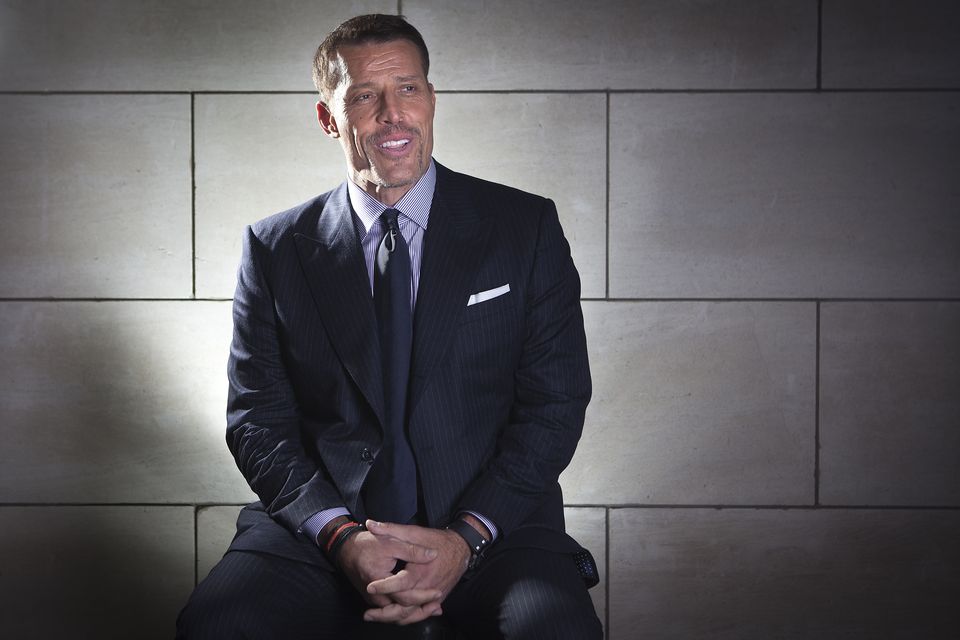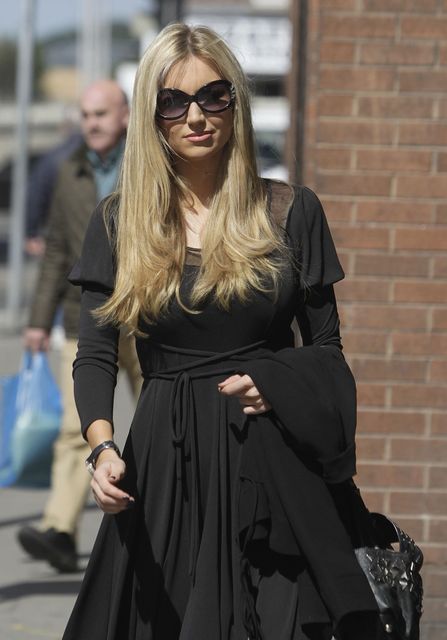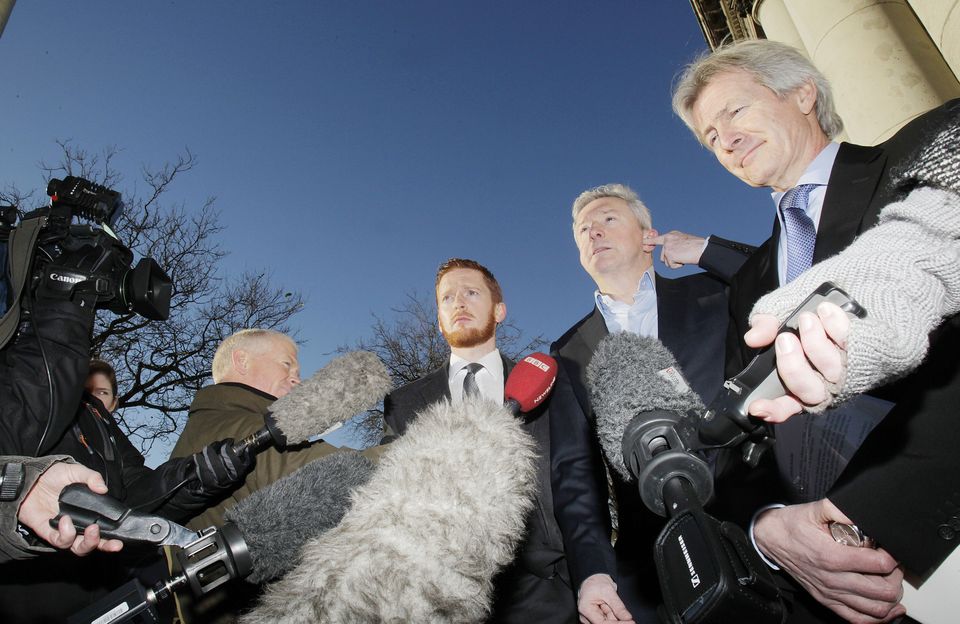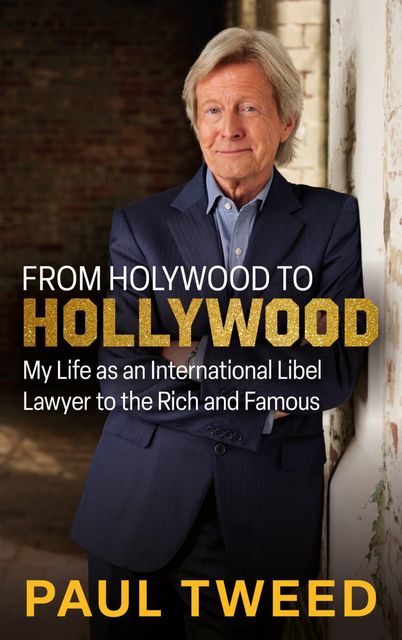In extracts from a new memoir by Irish libel lawyer Paul Tweed, he explains why international celebrities angered by media reports beat a path to his door
When the stories initially appeared in the National Enquirer, it seemed as though there wasn’t much that Britney could do about it. Up to that point, most US stars had to try to ignore what was written about them, hoping that the stories would soon lose traction.
However, the National Enquirer had, by then, launched a European edition, which meant they had inadvertently submitted to European defamation and privacy laws.
This, combined with Britney’s international reputation and extensive online coverage, meant she could take legal proceedings against the publication under UK libel laws. Indeed, while I was intending to take action, if necessary, in each of the UK and Irish jurisdictions, I had only got as far as putting the publisher on notice of our intention to proceed in the High Court in the UK or Ireland and a subsequent exchange of correspondence, when they and their lawyers, quite sensibly, decided that they would have serious problems in defending the case.
Kevin Federline and Britney Spears. Photo: Jason Merritt/FilmMagic
To be fair to them, they did not force Britney into the inevitable stress of legal proceedings and agreed to settle the case, a settlement which included a formal apology.
I will never forget watching on my computer screen as this apology travelled from Ireland across Europe and the Far East to Australia and LA before I had time to draw breath. This was a pivotal moment for me professionally — it became apparent that it no longer mattered where we obtained an apology because the internet meant it could be propelled back through the online stratosphere with the same speed and prominence as the offending article.
Although Britney believed that her marriage was secure at the time I was consulted, the couple separated just a few months later. If nothing else, this sudden development was a stark illustration of time being of the absolute essence in libel litigation.
The three factors that had played a key part in the Britney Spears case — the existence of a European edition of the publication, the fact that she was someone with an international reputation and the global online dissemination, formed the basis for the tsunami of claims that followed from Hollywood A-listers and other American household names, taking advantage of the more claimant-friendly legal regimes on my side of the Atlantic.
Unsurprisingly, it is Hollywood A-listers and international personalities who attract the most intrusive media attention, for the obvious reason that their name or photograph sells tabloid newspapers and also generates enhanced interest, and often controversy, on social media platforms.
Britney Spears’s case had been the first step that led to a list of world-famous personalities consulting me
For years, many US celebrities had become resigned to being tabloid fodder. However, now there was an opportunity not only to set the record straight but also to deter publication of false allegations in the future because vindication could be achieved in the form of an apology that could be pumped back across the internet in the same manner that the offending allegations had been published in the first place.
Britney Spears’s case had been the first step that led to a list of world-famous personalities consulting me, including Jennifer Lopez, the Jenners/Kardashians, Justin Timberlake, Ashton Kutcher, Tony Robbins, Harrison Ford, Johnny Depp, Jennifer Aniston and many others.
Even the reports in the media of these famous clients taking legal action provided them with a certain level of immediate international vindication because it demonstrated their outrage and determination to set the record straight.
It also did no harm to my brand and the marketing of my work… at little or no additional financial expense.
If sometimes the subject allegations appeared trivial to some sections of the public, the consequences for the celebrity in terms of damage to their valuable brand, whether for future movie roles or merchandising deals, could potentially run into million-dollar losses.
In some more extreme cases, there has been a threat to life from stalkers or those harbouring a grudge. The mental impact and trauma inflicted in these circumstances depends very much upon the state of mind of the person concerned at that particular time.
Britney, for instance, was subjected to media scrutiny and criticism on an unprecedented level. Other clients have had suicidal thoughts, such have been their fears and distress over the consequences of people believing false allegations against them. I often liken myself to a dentist — nobody really wants to be consulting me unless they are in considerable pain.
The bottom line is that these successful, and extremely busy, people would not be wasting time threatening litigation or seeking redress unless it was of the utmost importance to them. If anyone comes to me looking only for financial compensation, that is a warning flag. Most of the big names who have consulted me over the years are only interested in getting the record set straight and achieving reputational vindication at the earliest possible opportunity.
In the past, many of the global publishers and platforms were based in the safe haven of the US, where it is very challenging, to say the least, to successfully sue for defamation due to the protections afforded by the First Amendment of the US Constitution and what is known as a “public figure” defence.
Most people who hold any public office, even at a relatively low level, are considered public figures, which means they have to establish actual malice on the part of the publisher of the defamatory material in order to have any prospect of success. Even the wealthiest and most famous personalities have often found themselves unable to defend salacious allegations made against them in the USA.
To read the national press, you would think that libel tourists had been descending on the UK and Ireland like triffids, crossing the Atlantic in their droves. However, despite my repeatedly asking for examples of so-called libel tourism, nobody — whether journalists or politicians in the Dáil, Westminster or the US Congress — has been able to cite even one instance that could be properly classified as such.
Nonetheless, scaremongering has been frequently used to support the clamour for defamation law reform, perhaps in the absence of any other compelling reason. Some politicians have of course, particularly in the run-up to an election, been enthusiastic advocates for reform in order to pander to the media in the hope that it will bring some favourable press coverage for them at such a crucial time.
Jessica Biel and Justin Timberlake. Photo: Amy Graves
Two cases in particular, both of which I initiated on behalf of internationally renowned US personalities, have been cast up to me as examples of this rare beast. In September 2014, Heat European magazine had published an article implying difficulties in Justin Timberlake and Jessica Biel’s marriage, and falsely attributing quotes to Jessica Biel.
We achieved an early settlement in proceedings, which we had issued in the High Court in Dublin. The settlement included an apology to be announced before the court with a view to vindicating my clients and having the record set straight. We had every right and reason to select Ireland as the appropriate jurisdiction. There had been just as many copies of the offending magazine displayed and sold per capita in Dublin as there had been in London, and our objective was to secure the earliest possible hearing date in order that the retraction of the false story could be disseminated online at the earliest opportunity.
The defendant publishers had not argued strongly against this course of action and, given that the story was in the English-language edition sold in the UK and Ireland, there was no logical or legal reason for us not to avail of the convenience of the Dublin, as opposed to the London, courts.
The only objections, of course, would come from the media at large, trying to create a perception of libel tourism, possibly on the basis that the High Court in Dublin does not have the same stature as its counterpart in London.
Author and motivational speaker Tony Robbins. Photo: Carlo Allegri for The Washington Post via Getty
The second example is the case I brought for the US motivational speaker, Tony Robbins, against BuzzFeed and Twitter. BuzzFeed initially moved to challenge jurisdiction, on the basis that the claim should have been brought in the US, where Robbins resides and BuzzFeed’s main holding company is based.
However, the court accepted our arguments that he had an international reputation, his books were sold by Irish retailers and his motivational talks attracted many Irish people. It was, in fact, BuzzFeed UK we were suing, along with Dublin-based Twitter International.
In a judgment stretching to 85 paragraphs, Mr Justice Mark Heslin gave an extremely detailed and comprehensive reasoning behind his conclusion that our client had satisfied the fundamental jurisdictional requirements, including his having a reputation and there being sufficient publication within the Irish jurisdiction.
The world is now a global village, and most celebrities have an international profile as a result of the internet
This clarified the position for any other international clients in similar circumstances. I cannot, for client confidentiality reasons, go into the details of specific cases but I mention what is in the public domain to highlight the entitlement of globally known personalities to take legal action in each and every jurisdiction where they have suffered harm, and that the Irish courts are just as capable of determining these matters as any other judicial system.
The world is now a global village, and most celebrities have an international profile as a result of the internet. It’s my firm belief that they should be facilitated in being entitled to protect their reputation in each and every country where they can prove it has been damaged, with the onus being on them to establish that damage.
Rosanna Davison arrives at the High Court where she was awarded €80,000 after suing Ryanair for defamation. Photo: Niall Carson/PA
I believed Rosanna Davison had a solid case against Ryanair
In 2009 I had an intense run of cases on behalf of celebrities. One was Rosanna Davison a former Miss World, who is the daughter of the singer and songwriter Chris de Burgh, also a client at the time.
Ryanair’s charity calendar hadn’t featured any Irish women, and a journalist asked Rosanna’s opinion about this. She replied: “If I was organising it, I would have made sure that Irish women were involved because it’s an Irish charity and Irish fundraising.”
Her comment prompted Ryanair to issue a press release which Rosanna perceived to be defamatory and made her out to be racist, xenophobic and jealous.
Rosanna bravely took on Ryanair, who were determined to stick to its guns, thereby making legal proceedings inevitable. The case trundled on towards a full-blown hearing at the High Court in Dublin, which began in May 2011. I had anticipated from the beginning that some form of settlement proposal would be put on the table, but this never happened.
Although I always believed Rosanna had a solid case, I watched the 12-person jury being empanelled with considerable trepidation as I tried to work out how they might react to a young model from a wealthy background with a famous father.
There was no way that I could tell whether any had fallen foul of Ryanair’s charging policies… or whether they were fans of Chris de Burgh. The hearing began with Ryanair taking the same pugilistic approach it had adopted from the outset, which even included an attack on me personally for writing “aggressive” letters.
However, Judge de Valera kept very tight control on the proceedings from day one. Nonetheless, it was still very difficult to read the minds of the jurors, although there is normally some indication as a hearing progresses.
Rosanna showed remarkable stoicism and courage throughout the process, especially during the long wait for the jury’s verdict
As the case went on, it began to seem that at least two jury members were hostile to my client, judging by their facial expressions and demeanour when Rosanna was giving her evidence. One ended up standing down, and it became apparent that there was unlikely to be unanimous agreement between the jurors.
Rosanna showed remarkable stoicism and courage throughout the process, especially during the long wait for the jury’s verdict. They eventually came back with a finding in Rosanna’s favour and an award of €80,000.
I was relieved and satisfied on the one hand; on the other, I felt disappointed that the damages were not the six-figure sum that I had anticipated. Rosanna had been dragged through the courts and the case brought additional pressure and much wider dissemination of the story.
Ryanair remained unrepentant and was dismissive about the award but decided not to appeal. For my part, I received what I saw as a welcome compliment a short time later, when Ryanair approached me, offering me an annual retainer to act for them in media-related matters. I have acted for them and for their charismatic CEO Michael O’Leary ever since.
Louis Walsh (centre) speaks to the media with solicitors Paul Tweed (right) and Carl Rooney outside court after his defamation case. Photo: Julien Behal
The story caused Louis Walsh, a very sensitive person, great distress
Louis Walsh, the X Factor judge and music impresario, first got in touch with me in 2011 following the most appalling libel against him that was published on the front page of The Sun. The allegation — that Louis had sexually assaulted someone in a nightclub toilet — was as outrageous as it was fabricated. Despite having this pointed out, the newspaper failed to act, and the allegations went viral — even though this was before social media had taken the extensive hold on society that it has nowadays.
I could not help but feel absolute sympathy for Louis from the outset. He came across as a very genuine, open and sensitive person — perhaps not always how he came over when he was on the X Factor. The more I engaged with him, the more determined I was to get a result for him. The story caused Louis enormous personal distress. The Sun refused to back down. Even with us doing everything that we could to expedite, the legal process is slow, and getting a court hearing takes many months, if not years.
Louis himself described what had happened to him as something he wouldn’t wish on his very worst enemy
We do try to generate early publicity around the fact that libel proceedings have been issued on behalf of the client to show that they are coming out fighting, expressing their outrage and robust denials. In the meantime, the victim of the libel has to live every hour and every day with the stigma and stress of the allegation hanging over them, not knowing if or when they will ever receive sufficient vindication to let them get their life back on track.
This is why defamation damages tend to be much higher proportionately than personal injury awards. It is difficult to understand and assess, never mind put a figure on, the serious psychological impact of an attack on a person’s integrity.
The stain and stigma are likely to linger on regardless of any eventual legal outcome. Louis put a brave face on things, and we did everything within our power to get the case into court quickly. The publishers of The Sun were eventually convinced by their legal advisers that they should settle, and settle they did for €500,000 — accompanied by a comprehensive retraction and apology.
Outside court, I made a statement, with Louis beside me. “We are not trying to gag the press or stop investigations, but if there was a strong body that we could have rung before to get them to stop the story for 24 hours, we could have provided proof that Louis wasn’t even in the place at the time and all this would have been avoided. They gave us just a few hours; they were determined to run it.”
Louis himself described what had happened to him as something he wouldn’t wish on his very worst enemy. It is a tribute to his fortitude that he did not crack under the strain of having this hanging over his head for many, many months.
Libel lawyer Paul Tweed’s new book published by Merrion Press at €16.99
These are edited extracts from ‘From Holywood to Hollywood: My Life as an International Libel Lawyer to the Rich and Famous’, by Paul Tweed, published by Merrion Press, €16.99



